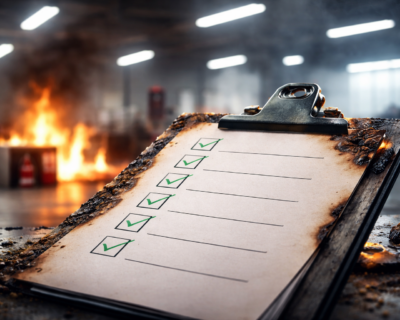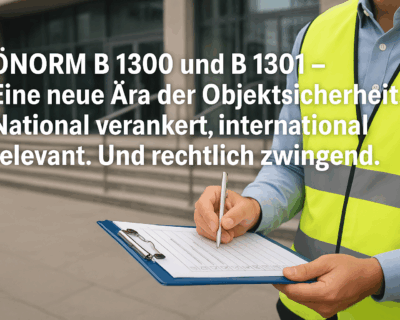Company inspection according to the trade regulations

§ Section 82b inspection: Why it is essential for your operating system
The § 82b inspection in accordance with the Trade, Commerce and Industry Regulation Act (GewO) is a mandatory, recurring inspection for all approved operating facilities. It serves to ensure safety, legal compliance and the protection of employees, customers and the environment. But what exactly does this inspection involve, why is it so important and what happens if it is neglected?
1 What is the § 82b review about?
The inspection ensures that an operating facility complies with the requirements of the approval notice and the applicable legal regulations. This involves a check:
- Whether the system is installed and operated as approved.
- Whether the technical systems meet the current state of the art.
- Whether safety measures are being complied with in accordance with the official requirements.
Regular inspections prevent defects or outdated technology from posing a risk to employees, customers or the environment.
Note for our customers:
We have found that very often only the notification requirements are checked. This means that the review can be carried out quite cheaply and with little effort.
This is only part of the review. This review is therefore worthless and not expedient. Several court proceedings are already underway, as this inspection was only carried out in the area of the notification requirements and not in the other areas. The purpose of the inspection is not a bureaucratic measure, but to help the company to operate safely!
2. how often should the inspection be carried out?
The deadlines depend on the type of system:
- Every 6 years: For most operating facilities.
- Every 5 years: For installations in the simplified approval procedure.
- Individual deadlines: If these are specified in the approval notice.
- On request: The authority can request an inspection at any time.
Note: Some insurance contracts require shorter inspection intervals, such as every 2 years.
3. what happens if the test is not carried out?
Failure to carry out the § 82b review has serious consequences:
Administrative law:
- The authority may initiate administrative penalty proceedings.
- In the event of serious defects, the operating system can be shut down.
Criminal law:
- In the event of accidents or damage due to outdated technology, there is a risk of criminal prosecution.
- Gross negligence or intent can lead to the personal liability of managing directors.
Civil law:
- Insurance companies refuse cover if the inspection has not been carried out.
- The AUVA can assert recourse claims in the event of gross negligence.
4. advantages of regular inspections
Timely implementation of the § 82b review offers numerous advantages:
- Defects are detected at an early stage and can be rectified cost-effectively.
- Official penalties and business interruptions are avoided.
- The safety of employees, customers and the environment is guaranteed.
- Insurance claims remain fully intact.
Practical example: If the audit has not been carried out for years, extensive adjustments often have to be made in a short space of time. This results in high costs and considerable administrative work. Regular audits, on the other hand, ensure that necessary measures can be implemented in good time.
5 Conclusion: Safety, legal certainty and efficiency
The § 82b inspection is not a bureaucratic effort, but an essential part of plant management. It not only protects you from legal consequences, but also actively contributes to the safety and efficiency of your business.
📌 Tip: Plan your inspection well in advance and work with experienced specialists. A well-documented inspection saves you a lot of effort and guarantees the safety of your system.
For further information or assistance with the § 82b review, please do not hesitate to contact us.
You can downloadour information sheet here.
📞 Contact us at: 04242-33141-0
📧E-Mail:office@ah-se.at




